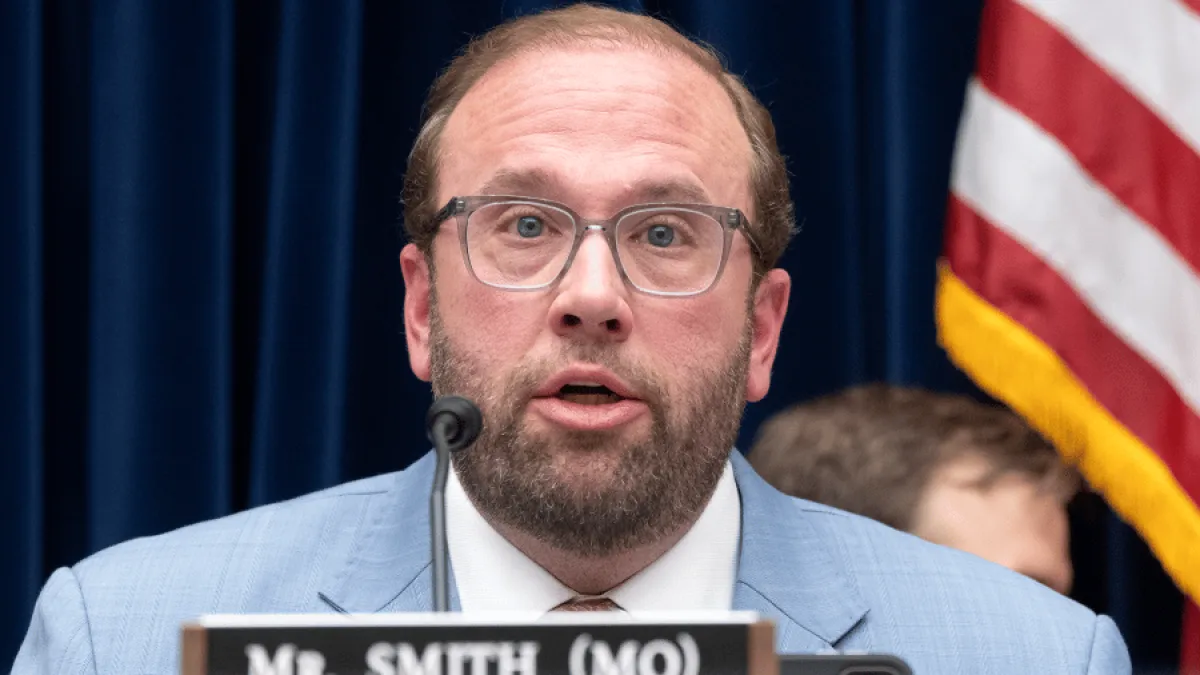
House Republicans on Monday released a multitrillion-dollar tax package that would make permanent many of the provisions in the 2017 tax bill while delivering on some of President Donald Trump's campaign pledges - including no taxes on tips and overtime pay - with the goal of getting the legislation to Trump's desk by July 4.
Three key committees - Ways and Means, Energy and Commerce, and Agriculture - will mark up their portions of the legislation starting Tuesday, and GOP leaders hope to hold a floor vote on the entire package next week, ahead of a Memorial Day deadline.
Analysts say the cost of the tax plan is at least $4.9 trillion, including more than $4 trillion in tax cuts over a decade, while reducing spending by roughly $1.5 trillion, including big cuts in Medicaid. The bill would also raise the debt limit by $4 trillion - an important component that Treasury Secretary Scott Bessent has requested to be done by mid-July.
Some notable details from what Trump has called his "one big, beautiful bill":
- The reduction in the individual tax rates in 2017 would become permanent. There is no increase in the top tax bracket to 39.6%, an idea suggested by Trump last week, so the top rate would remain at 37%.
- In addition to eliminating income taxes on tips and overtime pay, the bill would make the interest on car loans deductible, but only for American-made vehicles.
- Taxes on Social Security payments would remain, but the bill would provide an additional $4,000 tax deduction for seniors.
- The cap on the state and local tax (SALT) deduction would be raised to $30,000, up from the current $10,000, but limited to individuals earning less than $200,000 and couples earning less than $400,000. This falls short of demands by Republican lawmakers from high-tax states for a much higher cap. According to reports Monday, those lawmakers are looking for a cap closer to $62,000 for single filers and $124,000 for couples.
- Endowments at private universities could see taxes as high as 21% on endowment income.
- Tax breaks associated with renewable energy would be scaled back, including the elimination of the $7,500 electric car tax credit by the end of 2026.
- The child tax credit would rise from $2,000 to $2,500 through 2028.
- The deduction for pass-through businesses would rise from 20% to 23%.
Medicaid in the crosshairs: House Republicans on Sunday night also released their proposed changes to Medicaid ahead of the scheduled markup on Tuesday.
The GOP plan would introduce new work requirements of 80 hours per month for able-bodied adults without children. Income verifications would become more rigorous, and beneficiaries would be required to verify their eligibility twice a year rather than once. And states would be penalized for providing health care to undocumented immigrants. The plan does not include two of the most controversial proposals Republicans had considered: per-capita caps on Medicaid outlays and lower federal matching funds for state costs of covering the Medicaid enrollees who gained access to the program under the Affordable Care Act.
The Energy and Commerce Committee was instructed to come up with $880 billion in spending cuts over 10 years, and according to a preliminary analysis by the Congressional Budget Office, the committee exceeded its instructions, proposing $912 billion in cuts, with at least $715 billion coming from health care, mostly Medicaid. The CBO analysis also found that the GOP plan would reduce the number of people with health insurance by at least 8.6 million in 2034.
Some Republicans have warned against passing a bill that provides huge tax cuts that benefit the wealthy while taking health care from millions of Americans. On Monday, Sen. Josh Hawley published an editorial along those lines, saying the idea of cutting health care to pay for tax cuts is "morally wrong and politically suicidal."
"Mr. Trump has promised working-class tax cuts and protection for working-class social insurance, such as Medicaid," Hawley wrote in The New York Times. "But now a noisy contingent of corporatist Republicans - call it the party's Wall Street wing - is urging Congress to ignore all that and get back to the old-time religion: corporate giveaways, preferences for capital and deep cuts to social insurance."
Perhaps providing a glimpse of the Republican messaging strategy on the issue, at least in the House, Energy and Commerce Chair Brett Guthrie addressed those concerns in the pages of The Wall Street Journal, arguing that changes to Medicaid should not be seen as cuts but rather as a way to strengthen the program for those who deserve it.
"Undoubtedly, Democrats will use this as an opportunity to engage in fear-mongering and misrepresent our bill as an attack on Medicaid," Guthrie wrote. "In reality, it preserves and strengthens Medicaid for children, mothers, people with disabilities and the elderly-for whom the program was designed."
Democrats did indeed blast the plan, warning that Americans will lose coverage, premiums will rise and hospitals will close. "This is not trimming fat from around the edges, it's cutting to the bone," said Rep. Frank Pallone, the top Democrat on the Energy and Commerce Committee. "The overwhelming majority of the savings in this bill will come from taking health care away from millions of Americans. Nowhere in the bill are they cutting 'waste, fraud, and abuse'-they're cutting people's health care and using that money to give tax breaks to billionaires."
Hospital groups also panned the proposal. "These proposed cuts will not make the Medicaid program work better for the 72 million Americans who rely on it," Rick Pollack, president and CEO of the American Hospital Association, said in a statement. "Instead, it will lead to millions of hardworking Americans losing access to health care and many of our nation's hospitals struggling to maintain services and stay open for their communities. We urge Congress to reject efforts to dismantle this vital program."